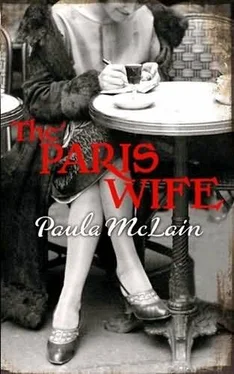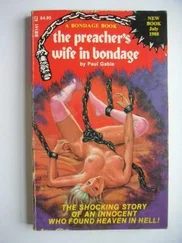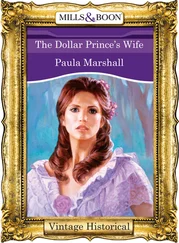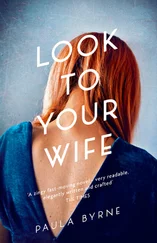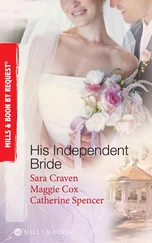“I know you are,” he said, and sighed. “Listen. We have to be together on this. If we’re not, then nothing’s any good. You see that, don’t you?”
I nodded and leaned into his shoulder.
“If you really want a baby, the time will be right someday.”
“But not now.”
“No, little cat. Not now.”
Chink came into the room, saying good morning. Then he stopped, eyeing us carefully for a moment. “Is everything all right then?”
“Hadley’s under the weather.”
“Poor Mrs. Popplethwaite,” Chink said tenderly. “You should be in bed.”
“Yes. Go and try to get some rest,” Ernest agreed. “We’ll be up to check on you at lunch.”
They went off to ski alone while I did my best to find some peace. I put on some nice thick socks and my Alpine slippers and then curled up in a chair by the fire to read The Beautiful and Damned . “Fitzgerald’s a poet,” Shakespear had said when she recommended it, just before she and Pound left for several months in Italy. The writing was exquisite, I had to admit, but it was making me sad to read about Gloria and Anthony. They talked prettily and had nice things, but their lives were hollow. I didn’t have the stomach for such a dire picture of marriage, not just now.
I’d put the novel down and climbed into bed to try for a nap when Ernest came in. His hair was damp and crushed from his wool hat, and his face was pink from the cold. He sat on the bed near me and I saw that his eyes had softened considerably. Time away with Chink had done him some good.
“You look very warm,” he said. “Do you mind if I share your cocoon?”
“Of course. If you think that’s a good idea.”
“I stopped at the chemist’s in the village,” he said, and took the little tin of condoms out of his trouser pocket.
“I’m surprised. You always say you hate them.”
“Not as much as being away from you.”
I looked at his trim belly and flanks as he undressed. “You’re very beautiful,” I said.
“So are you, Tatie.”
As he climbed into bed, his skin chilly against mine, it began to snow outside. We pressed ourselves together in a crush on the featherbed, his hands wonderfully rough, his hip bones sharp against my thighs. Later I would see plum-colored bruises there, and the skin on my face and breasts would be chapped and pink from where he hadn’t shaved, but for now there was only wordless desire and a feeling of return. He’d left me for a time. He’d doubted me, but now he was mine again and I wanted to keep him here in a tangle of limbs and bedsheets until I’d quieted every last voice and we were only right again.
After three weeks at Chamby, when we were well fed and sun chapped and had parted ways with Chink, we headed off to Rapallo, on the Italian Riviera, where the Pounds had a rented villa.
“Ezra thinks he’s discovered the place,” Ernest said on the train. “Though Wordsworth and Keats had a go at it before him.”
“Ezra thinks he’s discovered trees and the sky.”
“You have to admire the guy anyway, though, don’t you?”
“I don’t have to, but I will, I guess. For you.”
After traveling south for a full day and more, we were finally near Genoa, where the countryside grew ever more springlike and lovely.
“This is heaven,” I said. “I had no idea it would be so beautiful.” Through our window I caught glimpses of the sea, quick bursts of frothed blue, then dark rock again, then the sea. “Aren’t we lucky to be so happy, Tiny?” I said, just as we entered a mountain tunnel.
“Sure we are,” he said and kissed me. The sound of the train bounced against black rock, roaring in our ears.
When we arrived at Rapallo, I thought the town was charming, with its pale pink and yellow hotels on the shoreline, its quiet empty harbor. Ernest disliked it on sight.
“There’s no one here,” he said when we got to our hotel.
“Who should be?”
“I don’t know. It just doesn’t seem to have any life, this place.” He stood at the window in our room that faced the shore. “Doesn’t the sea seem a bit spineless to you?”
“It looks like the sea,” I said, and came up behind him and put my arms around him tightly. I knew it wasn’t the place that was troubling him. During our last week at Chamby, I had woken several mornings to find him at the small desk in our room, the sharpened pencil lifeless next to his hand, his blue cahier open but empty. He still wasn’t working, and the longer that went on, the harder it would be to start again. He was utterly determined to do it. He would do it. But how?
We played tennis every day in Rapallo and had long lunches with the Pounds in their terraced garden. Another couple arrived to join us on holiday, Mike Strater, a painter friend of Pound’s, and his wife, Maggie. They had a delicious-looking baby girl, with wisps of yellow hair and gray eyes. I liked to watch her exploring the world just beyond her blanket, plucking fistfuls of grass and staring at her hand intently, as if it held the secret to something. Meanwhile, Ernest and Mike ducked and lunged in a boxing match on the nearby flagstones. Aside from being a very good painter, Mike was athletic and game for a good deal, and I could tell Ernest liked him immediately. Mike was a much better physical match for Ernest than Pound, who tried very hard in his blustery way but had a poet’s delicate hands.
February was a changeable time in Italy. Some days were hung with mist, blotting out the hills behind the town until we felt very remote. The palm trees dripped and the swallows hid away somewhere. Sometimes the air was humid and drenched with sun. We could walk in the piazza or along the promenade to see fishermen on the concrete pier, dangling their poles out into the tide. The village was famous for its lace, and I liked to scan the shopwindows looking for the best pieces to send home as gifts while Ernest took long walks into the rocky hillside with Ezra, talking about Italian troubadours and the questionable virtues of automatic writing. Ernest liked to say he didn’t want his mind shut off when he was working because it was the only thing he had going for him. True enough, but when he was through for the day, he couldn’t turn his thoughts off without a glass of whiskey, and occasionally not even then. When he wasn’t writing at all, like now, it was often more than he could take. This was hard to watch and I worried about him.
A week into our stay in Rapallo, I had something new to unsettle me, however. I woke feeling dizzy, with a strange roaring in my head. I tried to eat breakfast but couldn’t stomach it, and returned to bed.
“It must have been the mussels we had last night,” I said to Ernest, and stayed in our room until midday, when the feeling passed.
The next morning, when the same symptoms hit at precisely the same time, I forgave the mussels and began instead to count the days forward and back. We’d arrived in Chamby just before Christmas and a few days after my monthly bleeding. It was now February 10, and I hadn’t had another period. When Ernest left the room to meet Ezra, I found his cache of notebooks and studied the one in particular that could illuminate my situation. Sure enough, for the last year I’d never been late by more than a day or two. This was a week at least, maybe ten days. I felt a small thrill of excitement, but didn’t say anything to Ernest. It wasn’t a certainty yet, and I was too afraid of what he would say.
I couldn’t keep my secret forever, though. I could hardly stand the sight of food and even the smell of whiskey or a cigarette turned me green. Ernest was thankfully content to blame the exotic food, but Shakespear was growing suspicious. One afternoon as we sat at a table in the garden watching Ernest and Mike practicing tennis serves at one another, she looked at me with her head cocked and said, “There’s something different about you these days, isn’t there?”
Читать дальше
